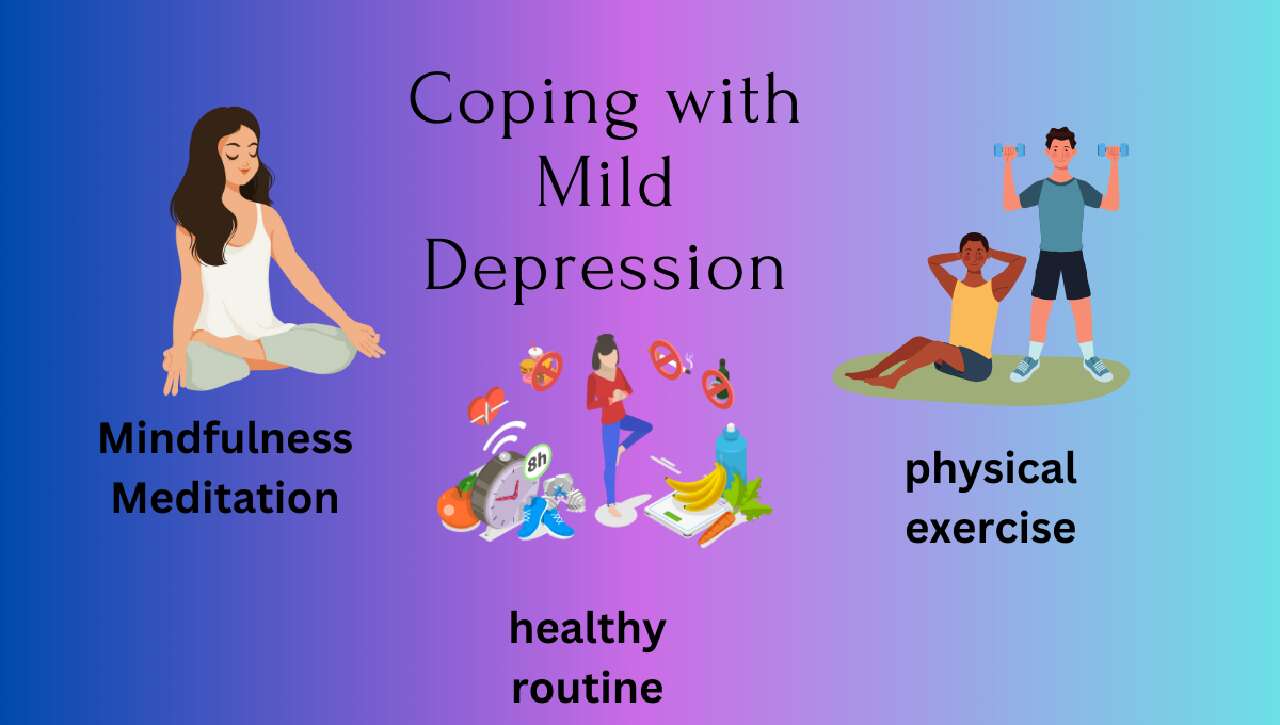Mastering the art of coping : A comprehensive guide to effective strategies: Coping strategies are the adaptive mechanisms individuals employ to navigate challenges and stressors. These strategies play an important role in shaping one’s mental and emotional responses to life ups and downs.

Comprehending copping strategies can be helpful for maintaining mental health in the busy trip of existence.
In this article, we will tell you about the realm of coping strategies, their significance, and practical approaches to managing stress. Let’s embark on a journey towards a healthier and more resilient mindset.
Why are coping strategies important?
Coping strategies are essential for maintaining mental health and fostering resilience. They empower individuals to confront and overcome adversity, leading to a more balanced and fulfilling life.
Types of coping strategies:
Understanding the diverse array of coping strategies is key to building a robust emotional toolkit.
Coping strategies can be categorized into many types, such as problem solving, emotion-focused coping, and avoidance coping. Each type serves a unique purpose in addressing different stressors.
What are several prevalent coping strategies?
Various coping mechanisms may prompt you to:
- Adjust your expectations downward.
- Seek assistance or support from others.
- Assume responsibility for the situation.
- Employ problem-solving techniques.
- Cultivate emotionally supportive relationships.
- Preserve emotional composure or, conversely, articulate distressing emotions.
- Question previously held beliefs that no longer serve you.
- Actively work to change the root cause of stress.
- Create distance between yourself and the source of stress.
- Contemplate the problem from a religious perspective.
It is crucial to assess your overall lifestyle when facing substantial stress. Participate in activities that alleviate stress to enhance your overall stress coping strategies. Consider:
- Ensure you get sufficient, high-quality sleep.
- Maintain a well-balanced diet.
- Incorporate regular exercise into your routine.
- Take short breaks during the day to unwind.
- Plan vacations to distance yourself from home and work.
- Integrate enjoyable or leisure activities into your daily schedule.
- Practice relaxation techniques like yoga, prayer, meditation, or progressive muscle relaxation.
- Limit the consumption of caffeine and alcohol.
What are the best internal coping strategies?
Discovering the best internal coping strategies involves introspection and self-awareness. Meditation, mindfulness, and cultivating a positive mindset are examples of powerful internal coping mechanisms.
Healthy and unhealthy coping strategies:
While coping strategies are vital, not all approaches are equally beneficial.
What coping strategies are not healthy ways of dealing with stress?
Engaging in excessive alcohol consumption, procrastination, and denial are examples of unhealthy coping mechanisms that can exacerbate stress rather than alleviate it.
Which coping strategies are helpful?
Healthy coping strategies encompass seeking support from friends or professionals, engaging in physical activity, and practicing mindfulness. These approaches contribute to long-term well-being.
Which coping strategies are harmful?
Harmful coping strategies, such as substance abuse or excessive social withdrawal, can lead to a cycle of negative consequences. Recognizing and avoiding these behaviors is crucial for maintaining mental health.
- Positive coping strategies: Fostering a positive mindset is a powerful coping mechanism in itself. Coping strategies involve having a positive attitude, like practicing gratitude, re framing negative thoughts, and cultivating optimism, which are coping strategies that contribute to a resilient mindset.
- How to identify positive coping strategies: Positive coping strategies are characterized by their constructive impact on mental health, promoting emotional well-being, and adaptive responses to stressors.
Specific coping strategies for anxiety and depression:
Tailoring coping strategies to specific challenges, such as anxiety and depression, is critical for targeted and effective intervention.

Coping strategies for anxiety: deep breathing exercise, progressive muscle relaxation, and cognitive behavioral techniques are effective coping strategies for managing anxiety. Three strategies for coping with depression are given below.
- Engaging in pleasurable activity.
- Building a strong support system and
- Seeking professional help is one of the key strategies for coping with depression.
What are the strategies for coping with mild depression?
Three strategies for coping with mild depression are given below.

Mindfulness Meditation, physical exercise, and maintaining a healthy routine are effective coping strategies for mild depression.
Coping with Uncertainty: Uncertainty is an inevitable aspect of life, and coping strategies tailored for such situations are invaluable. Coping with uncertainty: the three general strategies for coping with uncertainty are given below. Adapting to change, building resilience, and developing problem-solving skills are essential strategies for coping with uncertainty.
Deference between positive and negative coping strategies: Understanding the distinction between healthful and harmful coping strategies is crucial for making informed choices.
Distinguishing Positive and Negative Coping Strategies:
Understanding the distinction between healthy and harmful coping strategies is crucial for making informed choices.
- How do healthful and harmful strategies defer? Healthful coping strategies promote long-term relief but may exacerbate stress in the long run, and negative coping strategies include substance abuse, avoidance, and self-destructive behaviors that provide temporary relief but contribute to long-term negative (-ve) consequences.
- Awareness and consciousness: Being conscious of one’s, enhances self-awareness and promotes intentional decision-making.
- What is the value of conscious: Conscious awareness enables individuals to make informed decisions, fostering personal growth and resilience in the face of challenges.
- When are coping strategies harmful? Coping strategies can be harmful when they are used as a sole means of avoidance rather than addressing underlying issues. Recognizing this distinction is important for effective coping.
- Practical coping strategies for stress: In the hustle and bustle of daily life, having practical coping mechanisms for managing stress is paramount. When you feel stressed, use the two strategies given below.
- Engaging in physical activity, such as a brisk walk, and practicing deep breathing exercises are two practical strategies that can quickly alleviate stress.
Conclusion:
Mastering coping strategies is a continuous journey that involves self-reflection, adaptation, and international choice. By incorporating a diverse range of coping mechanisms and staying mindful of their impact, individuals can navigate life with resilience and grace.
3 thoughts on “Coping strategies”